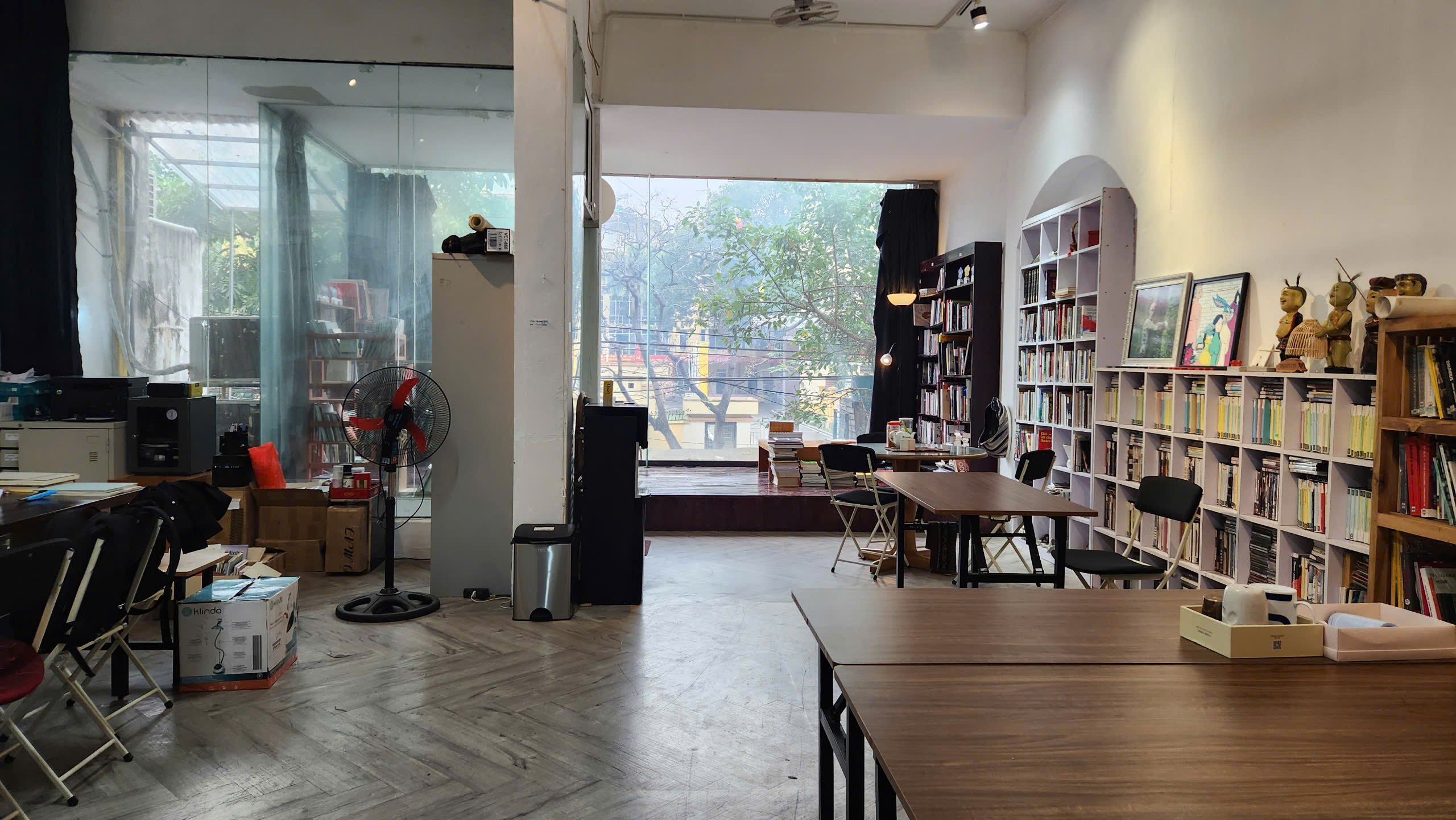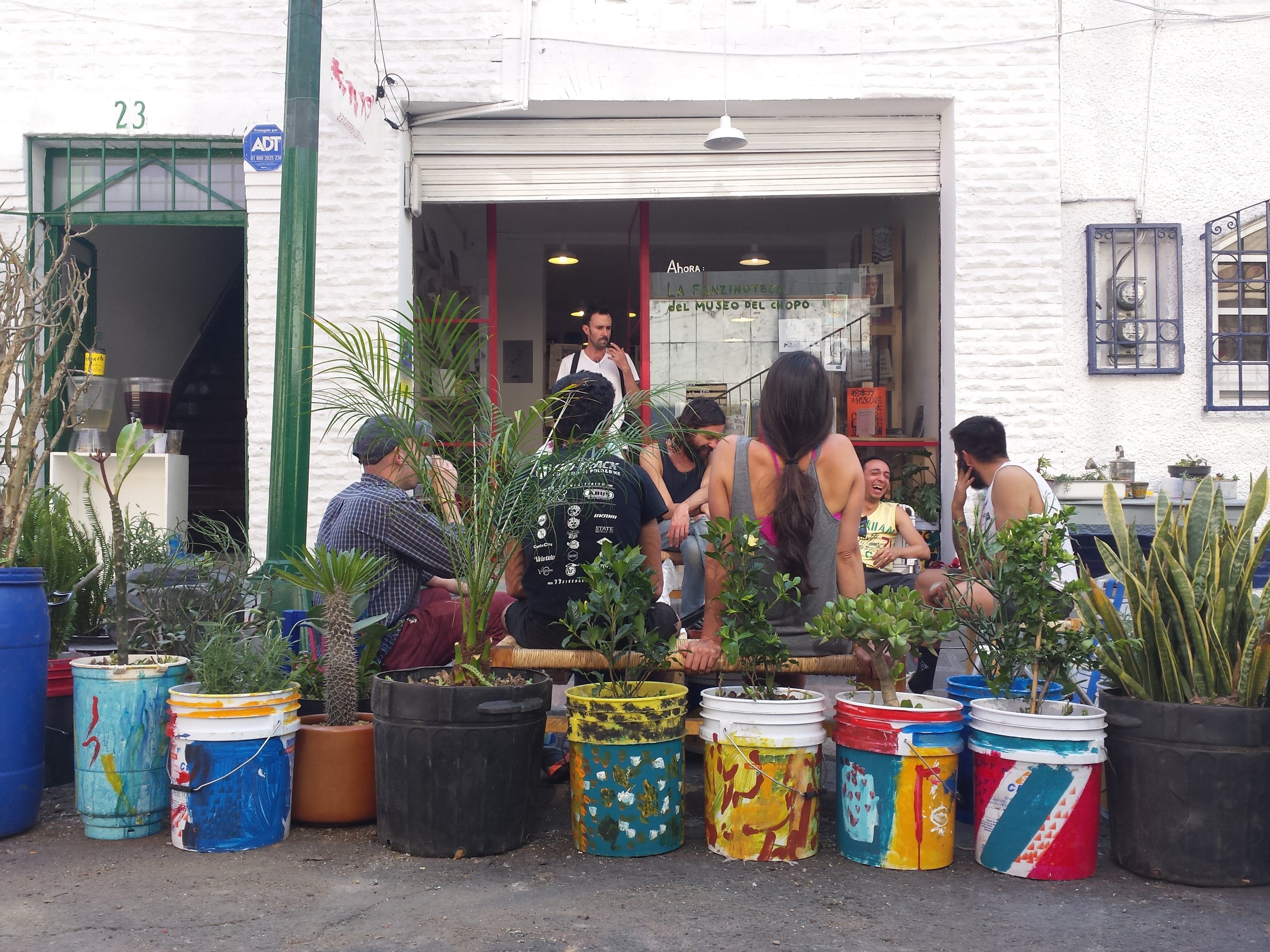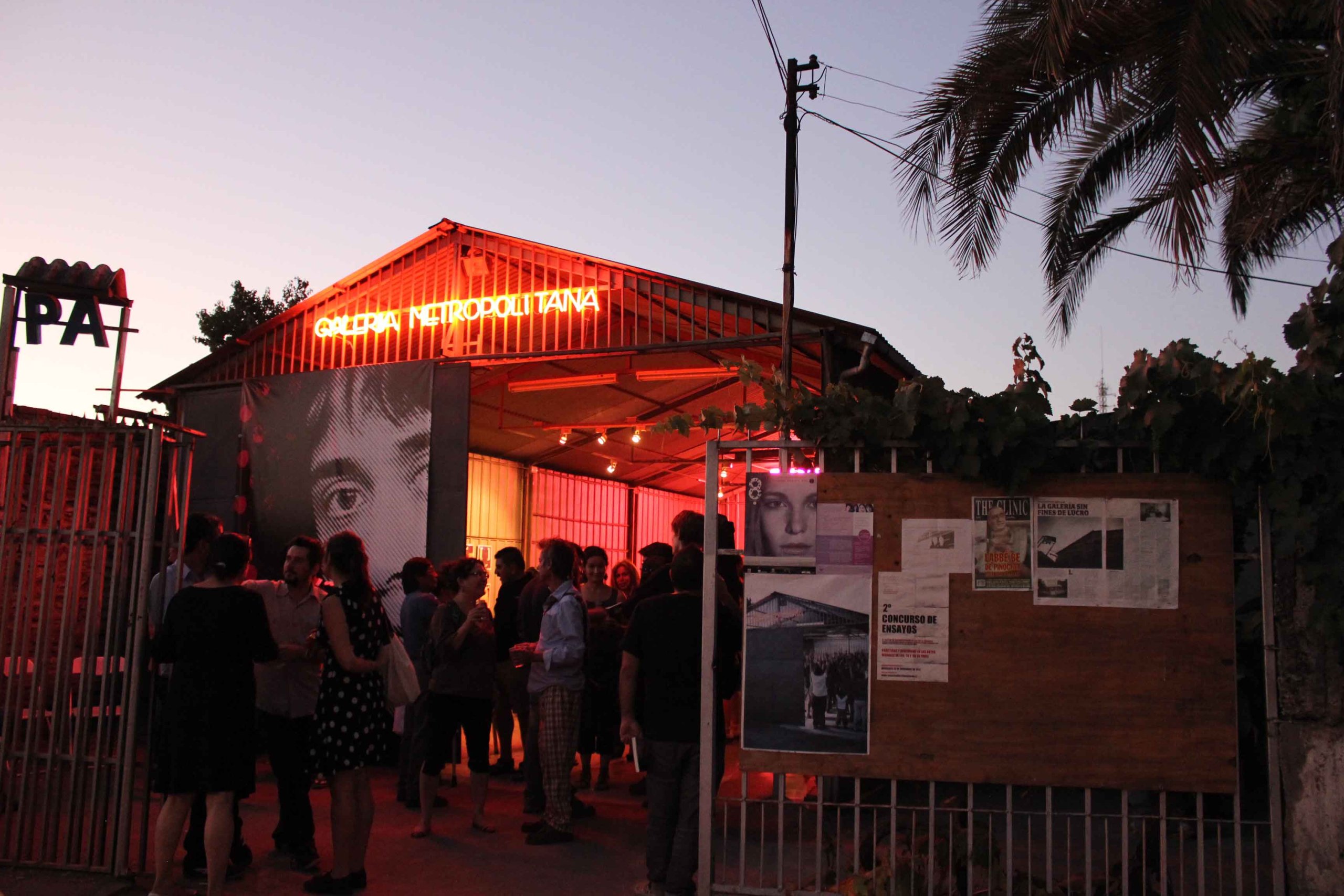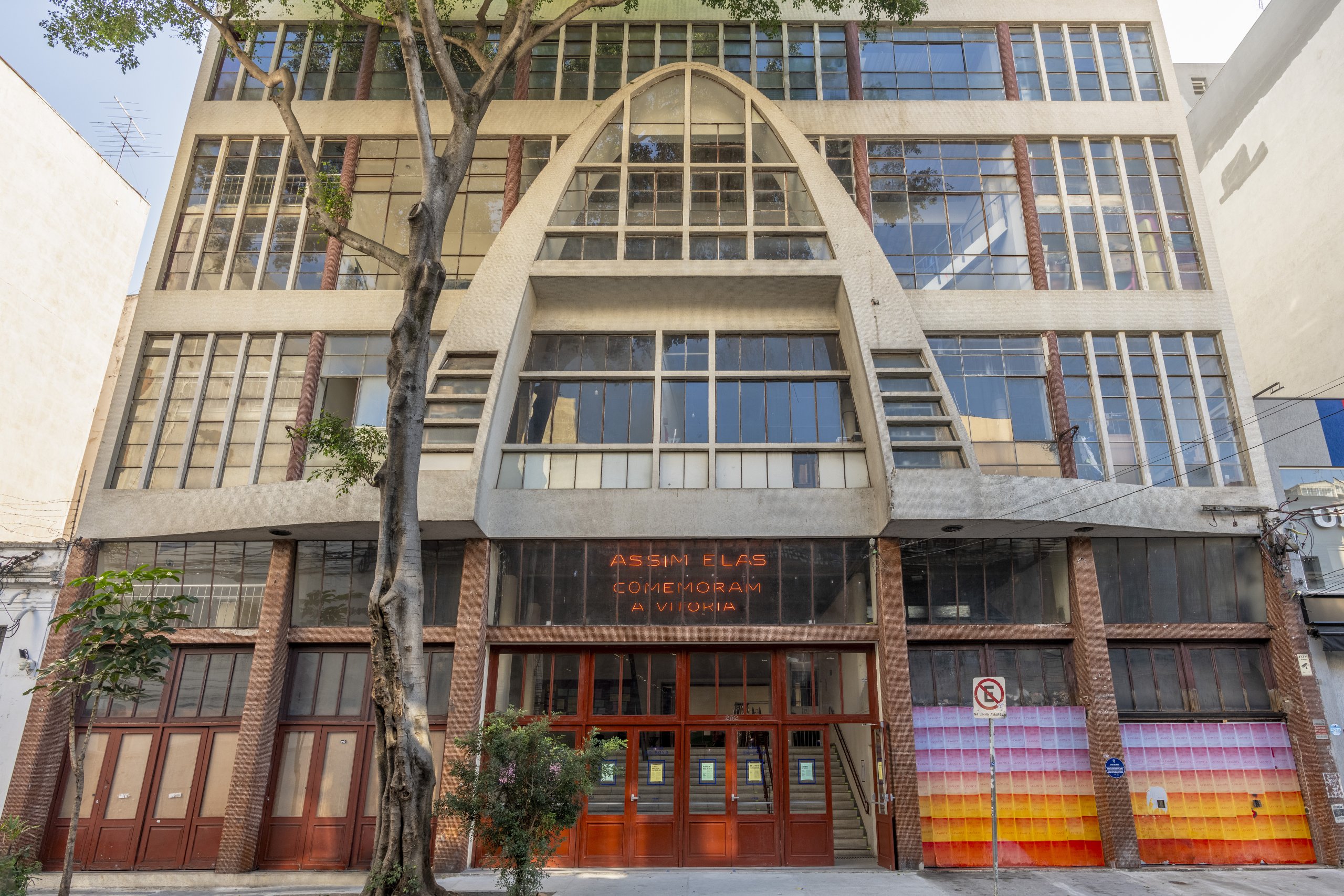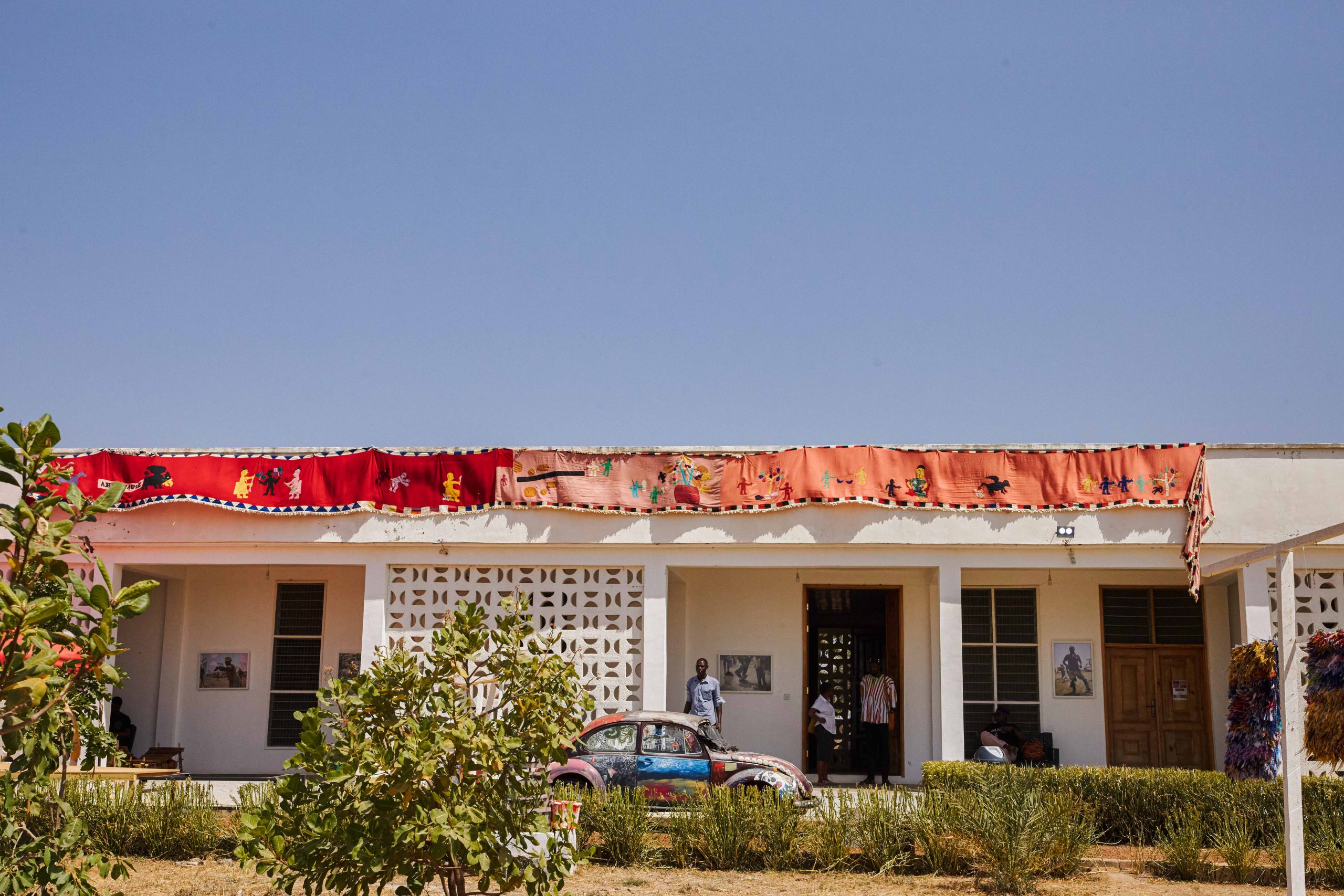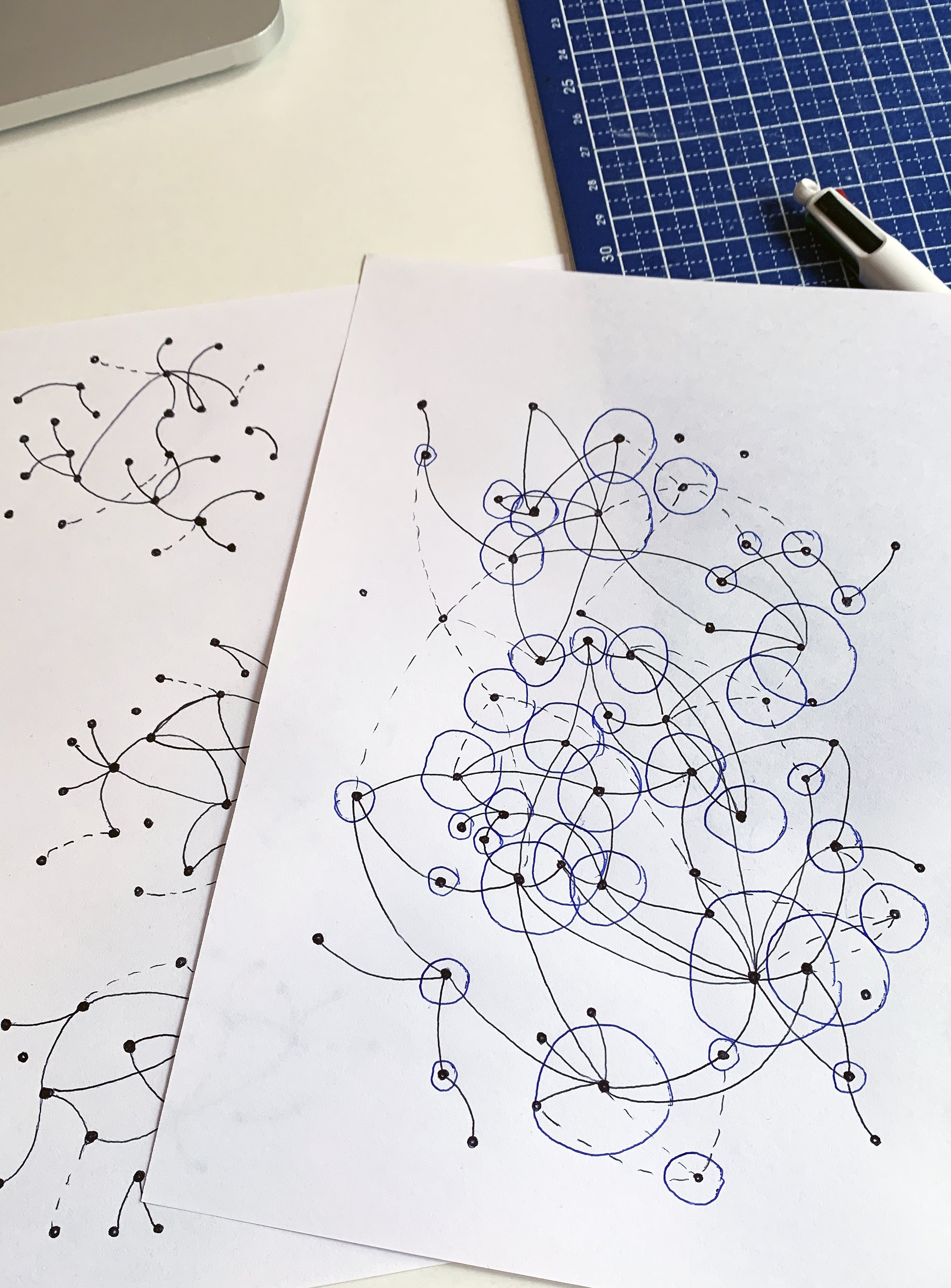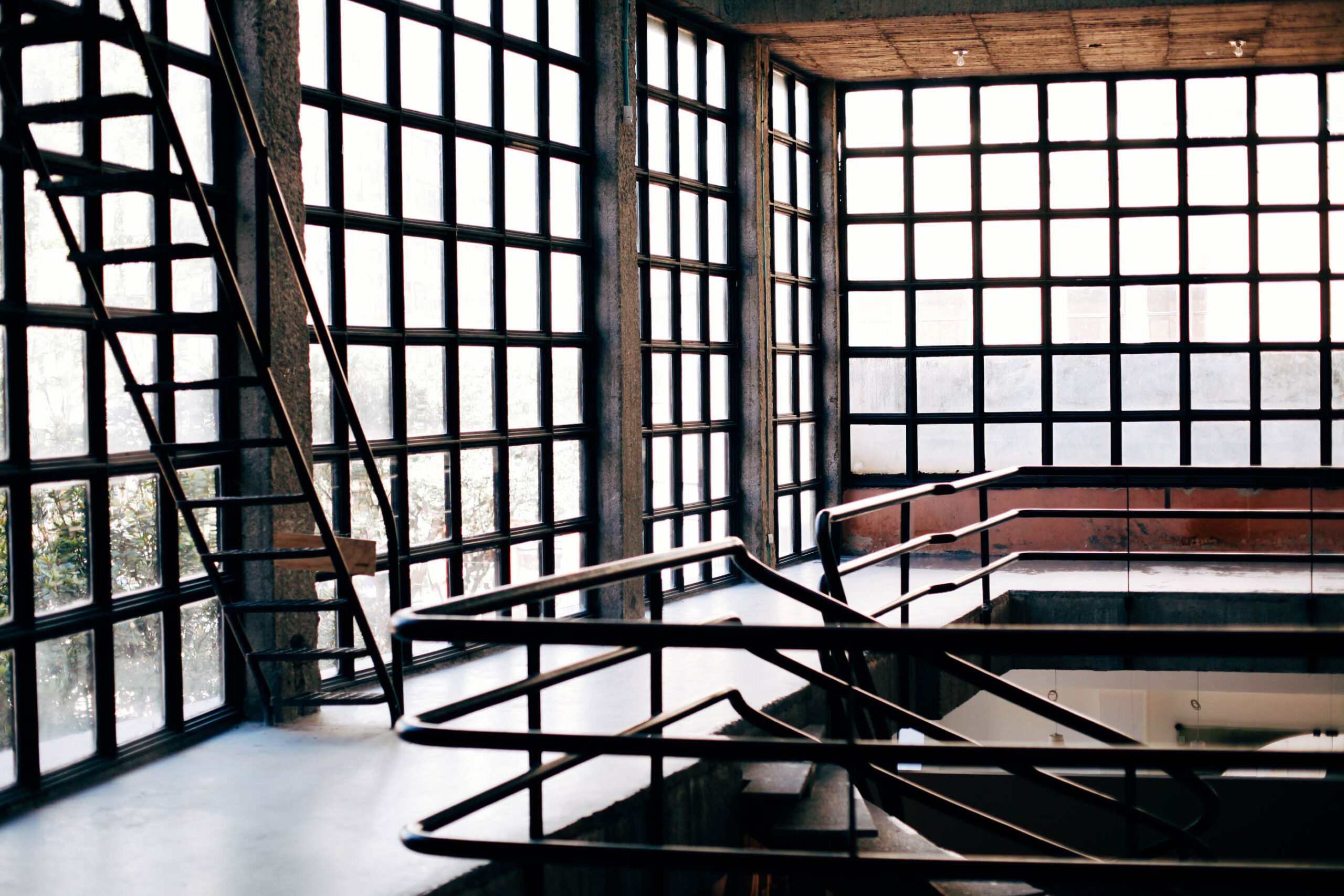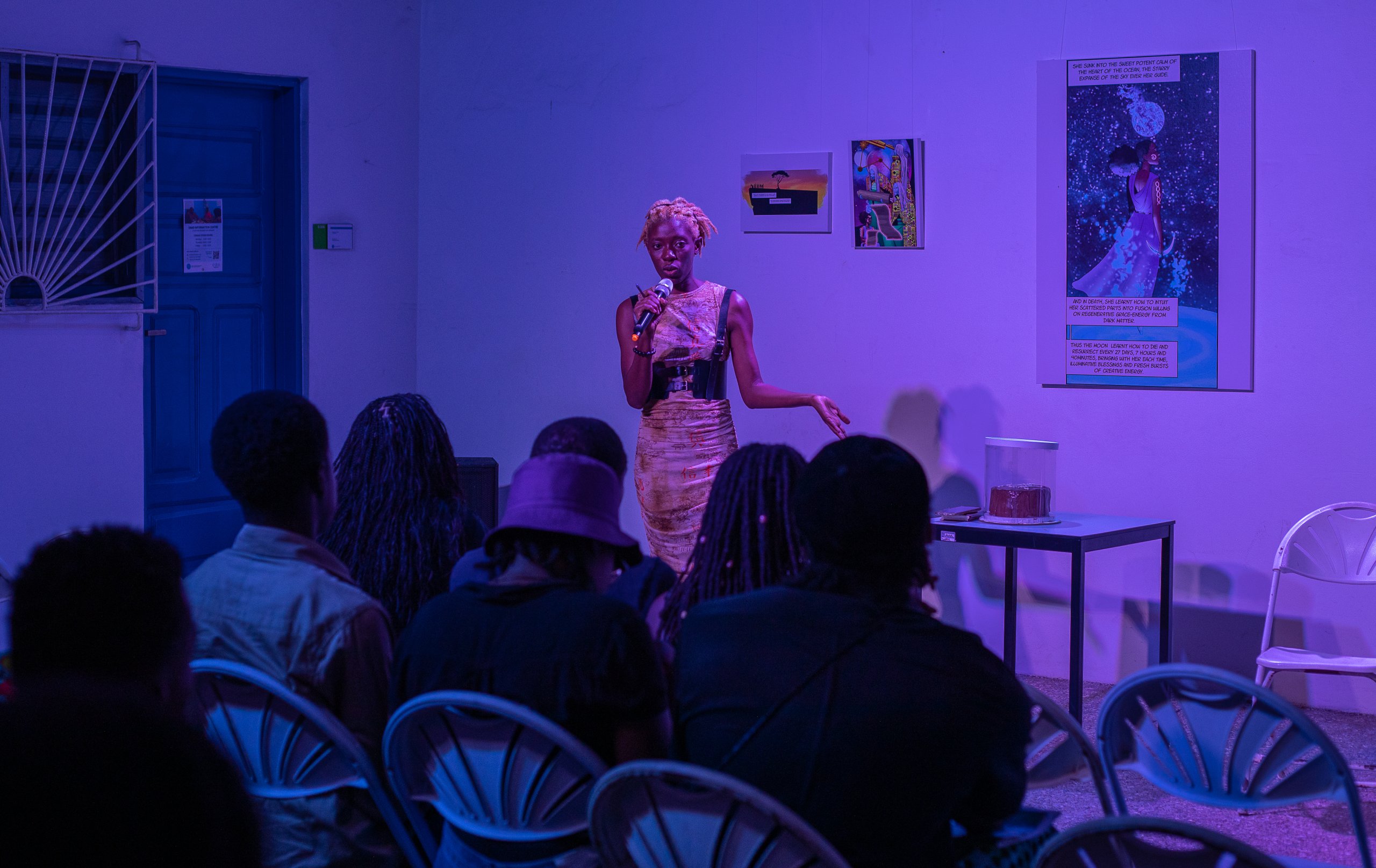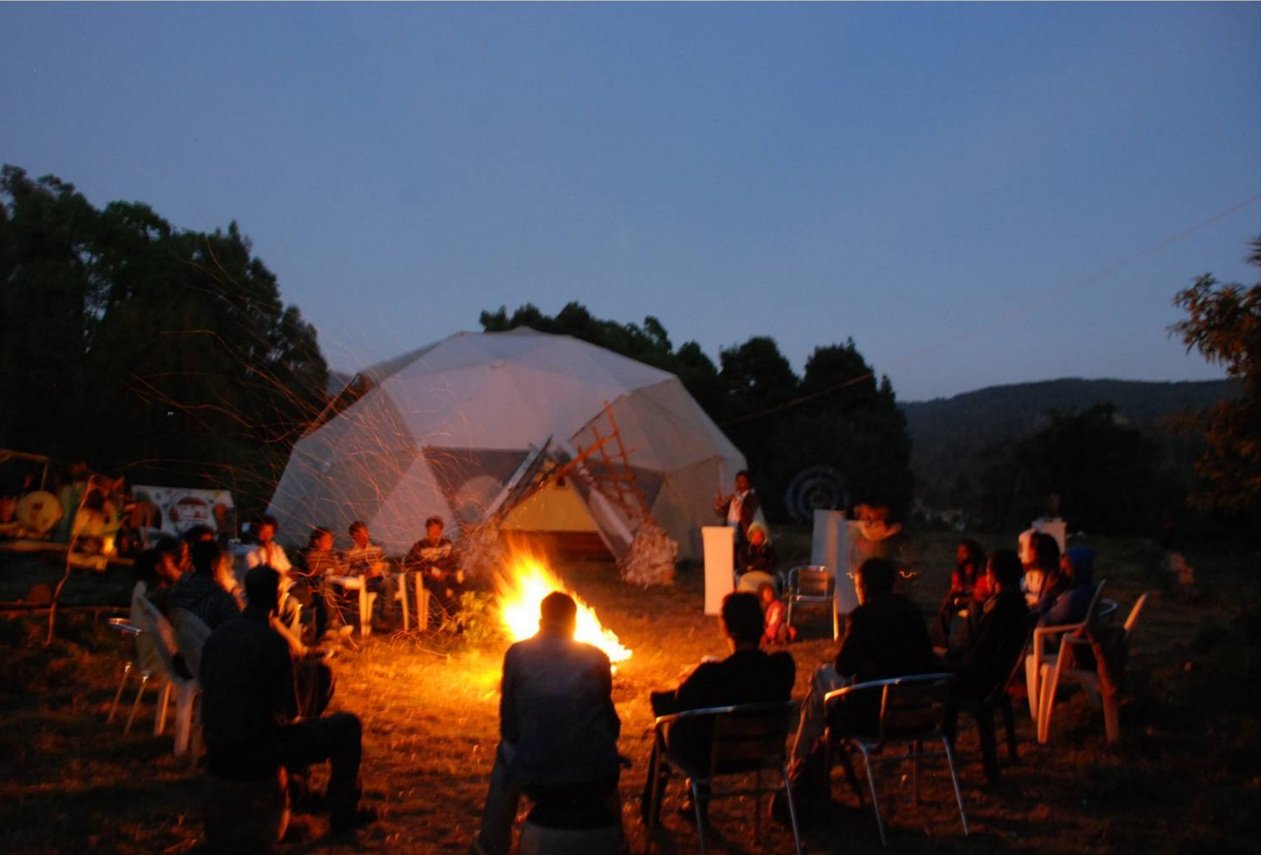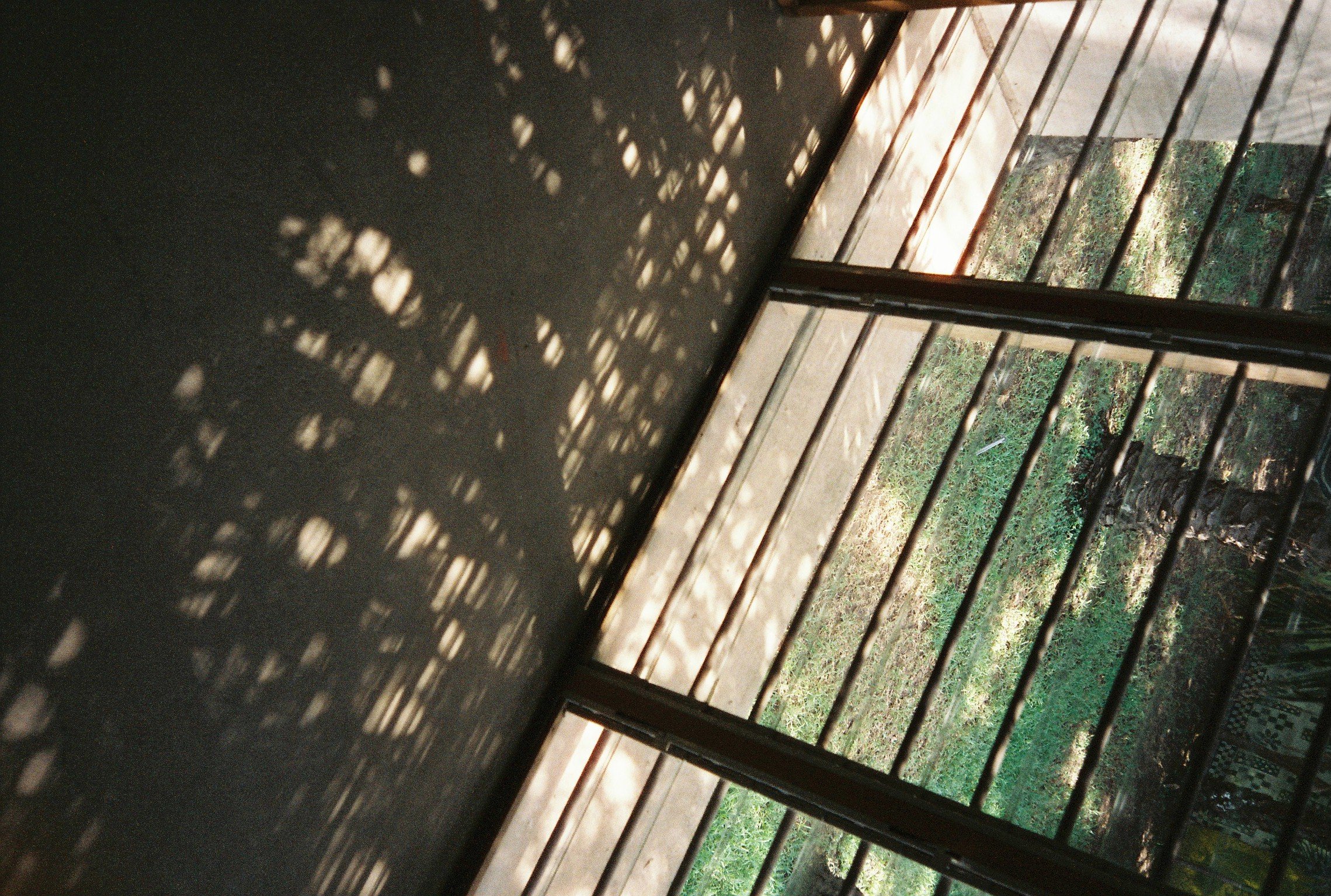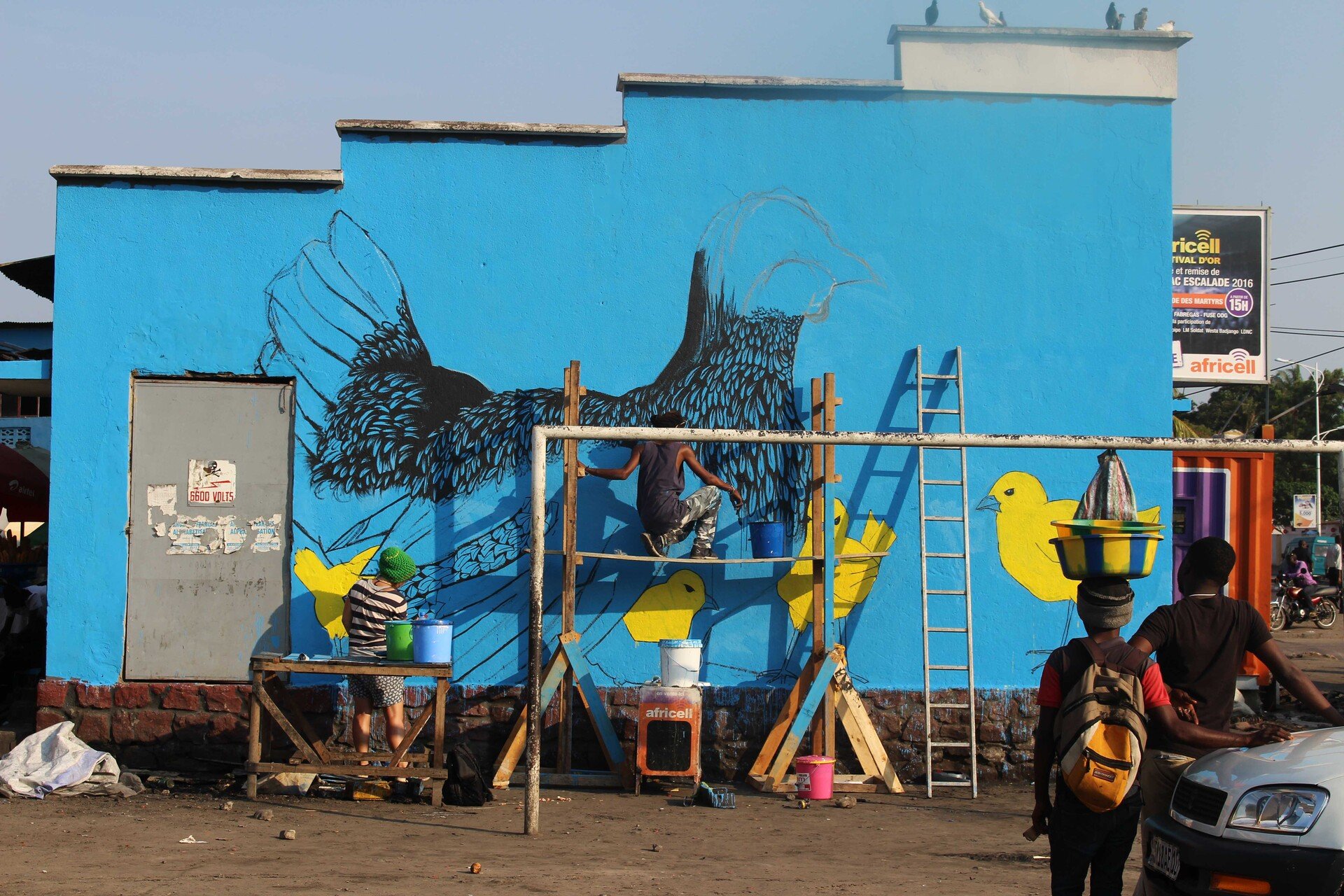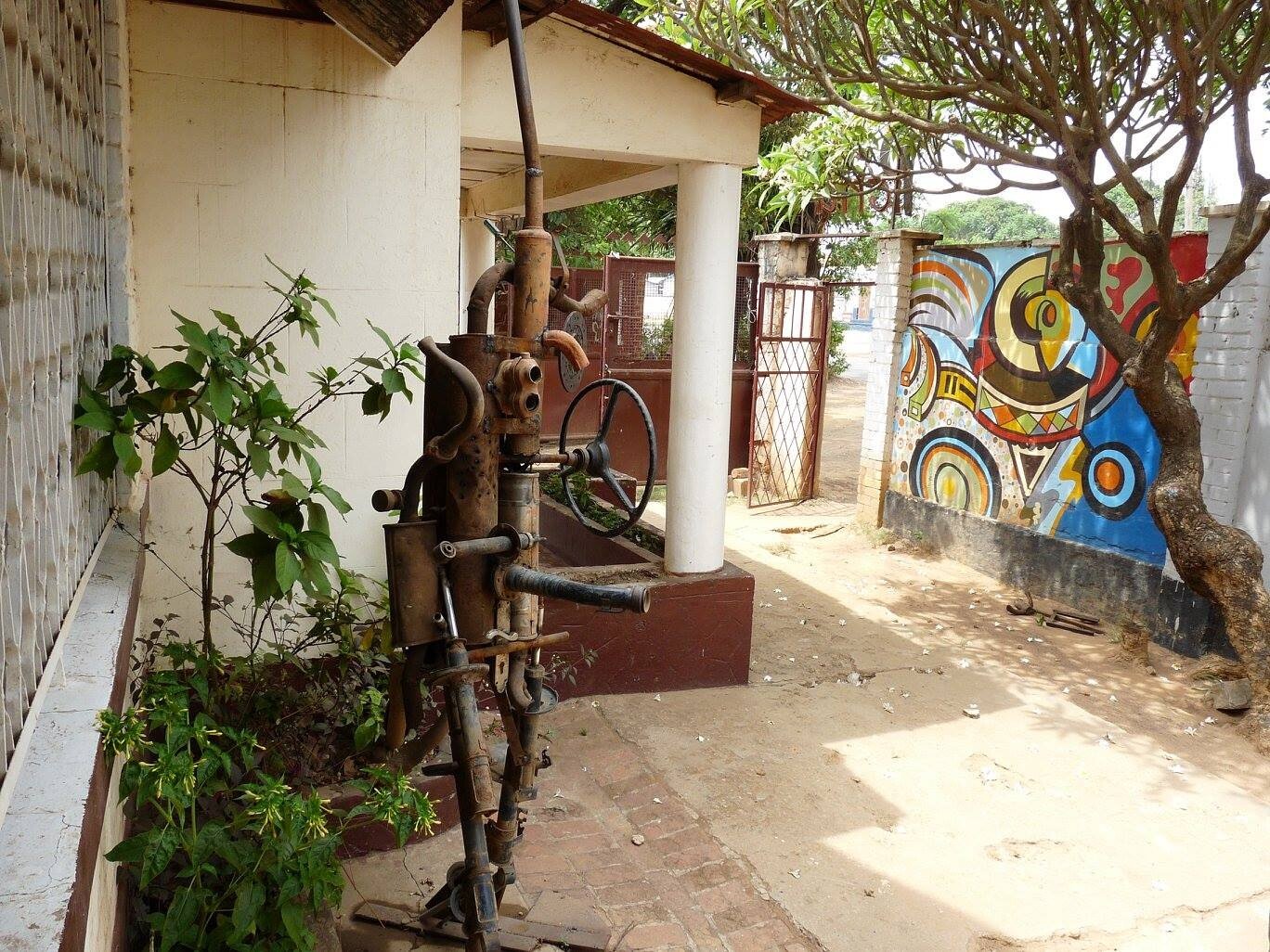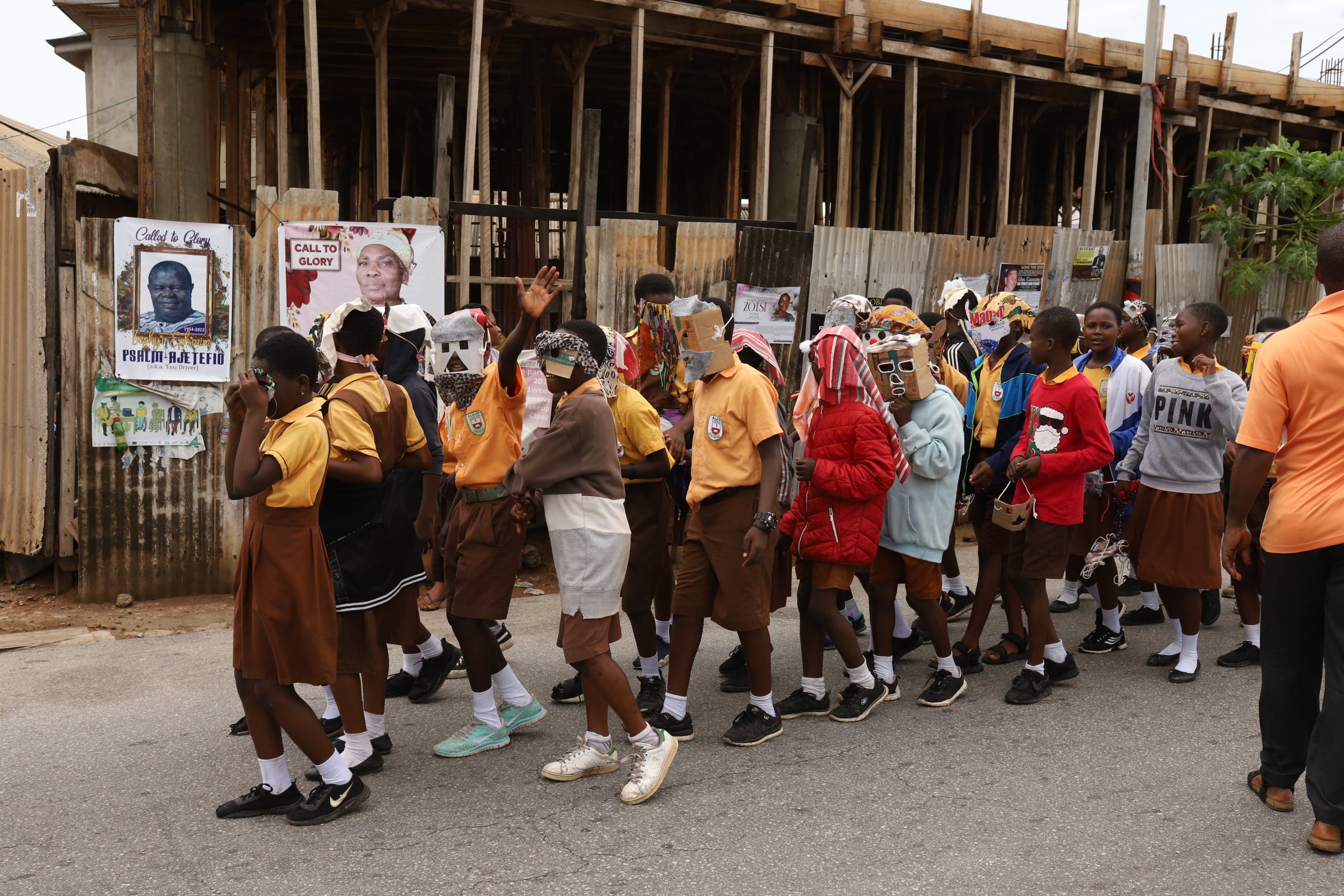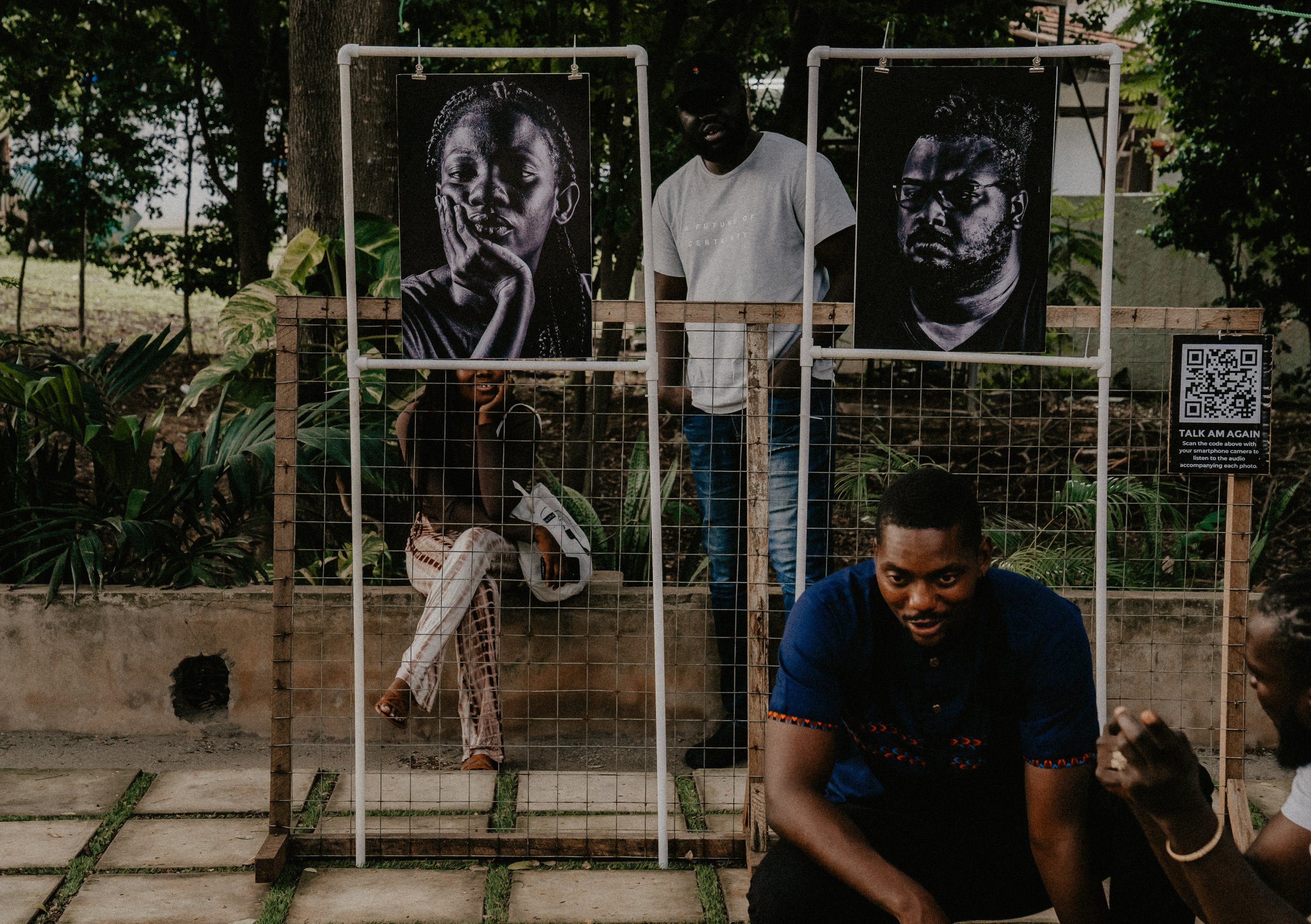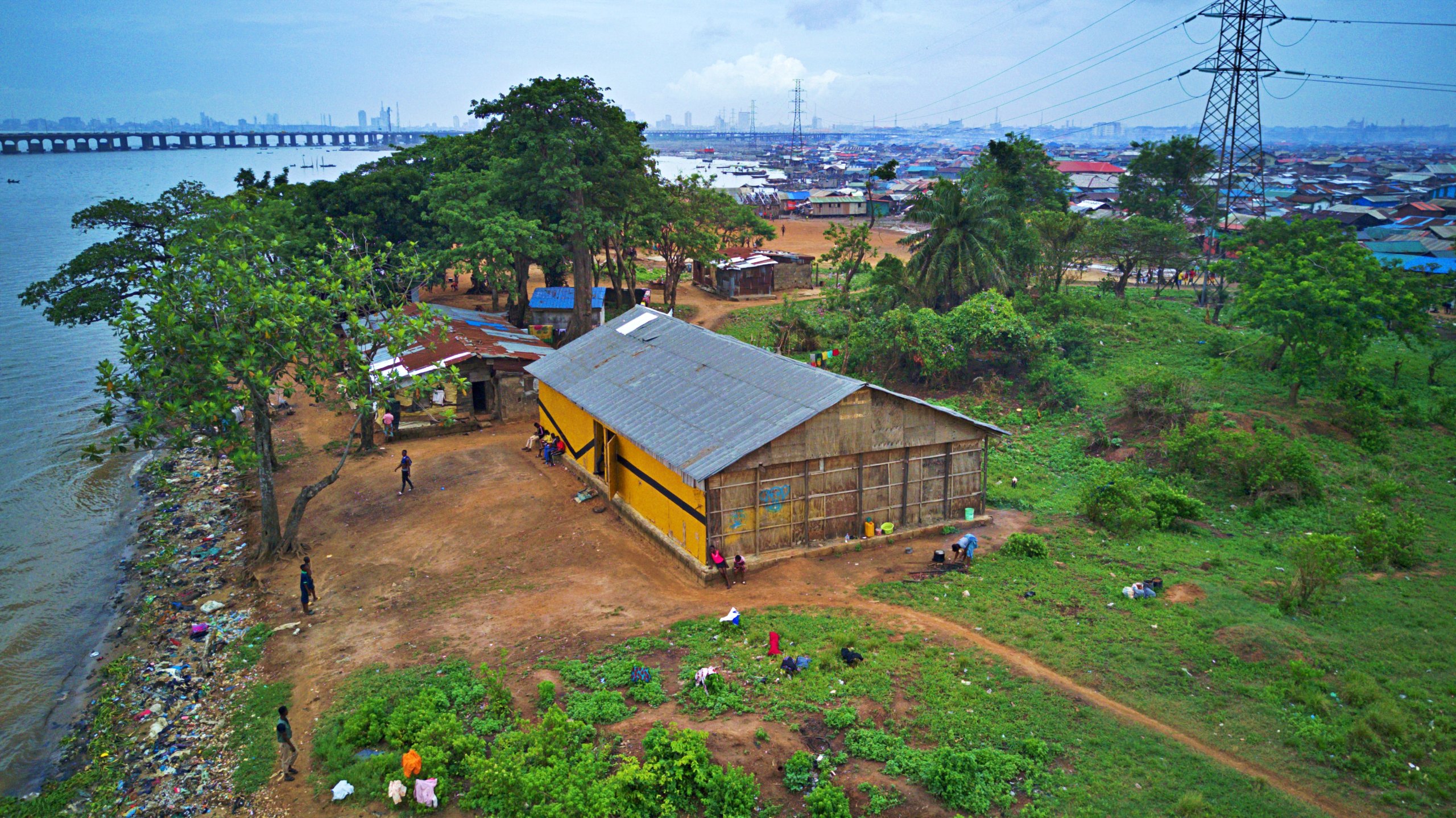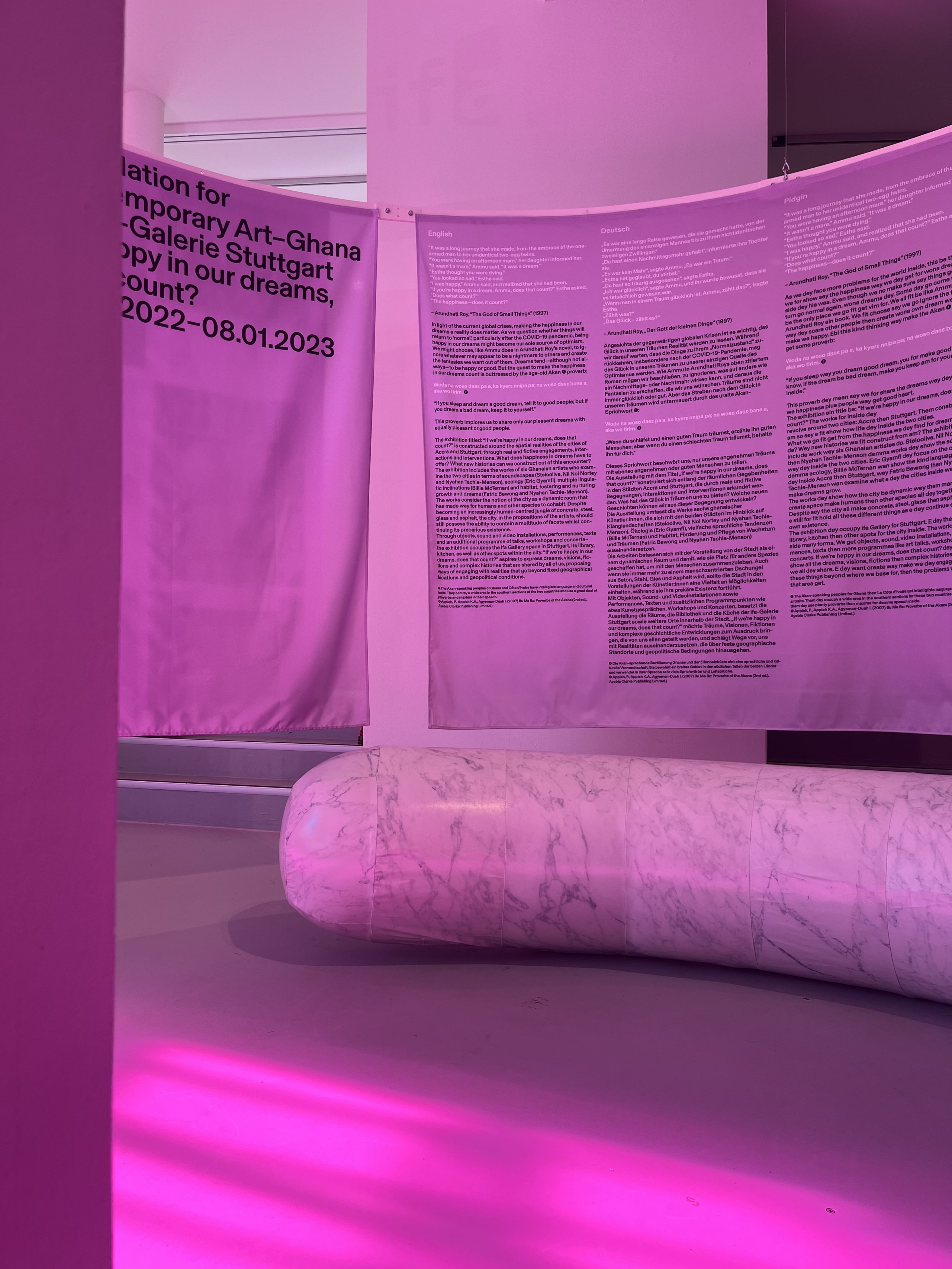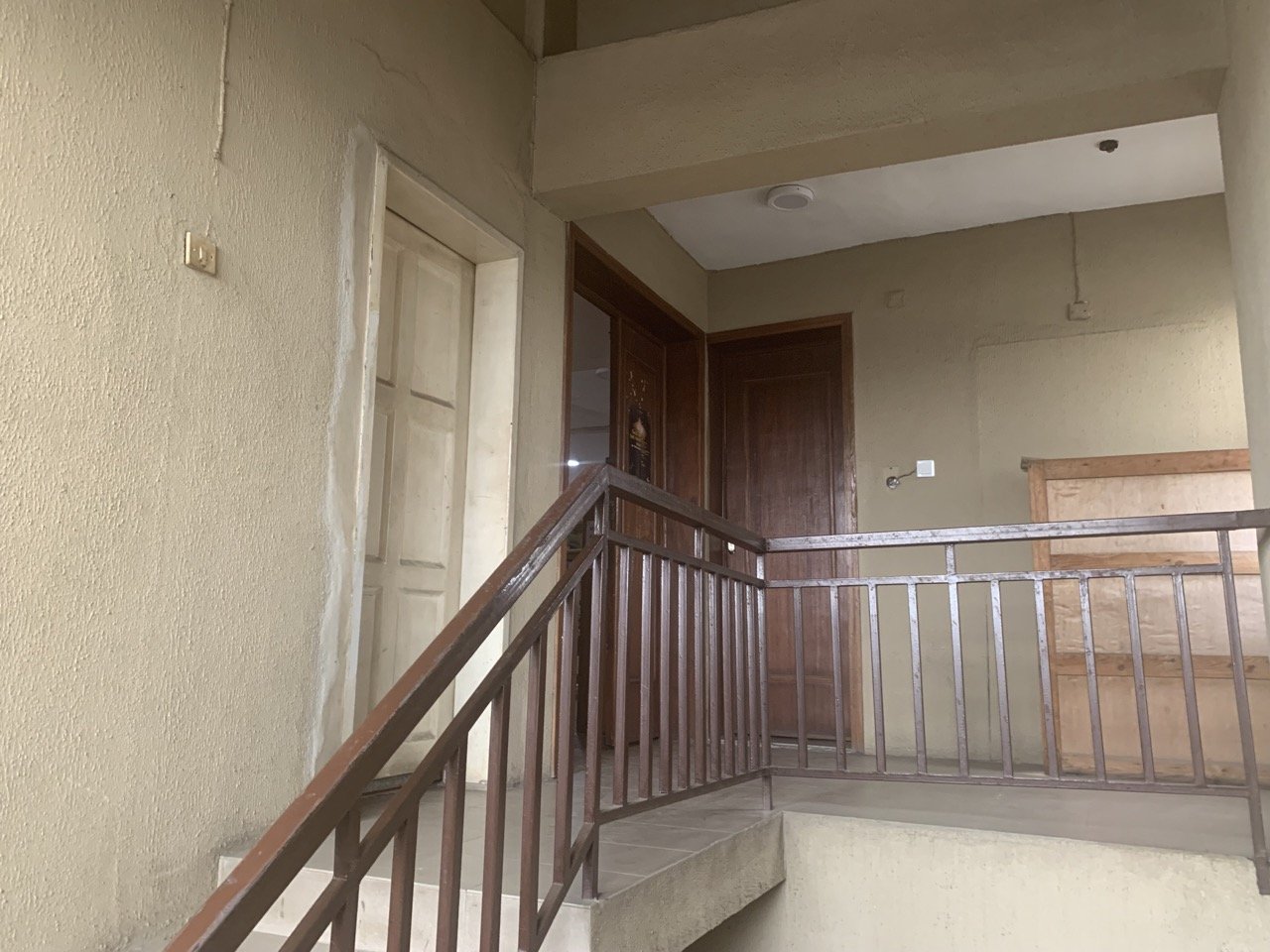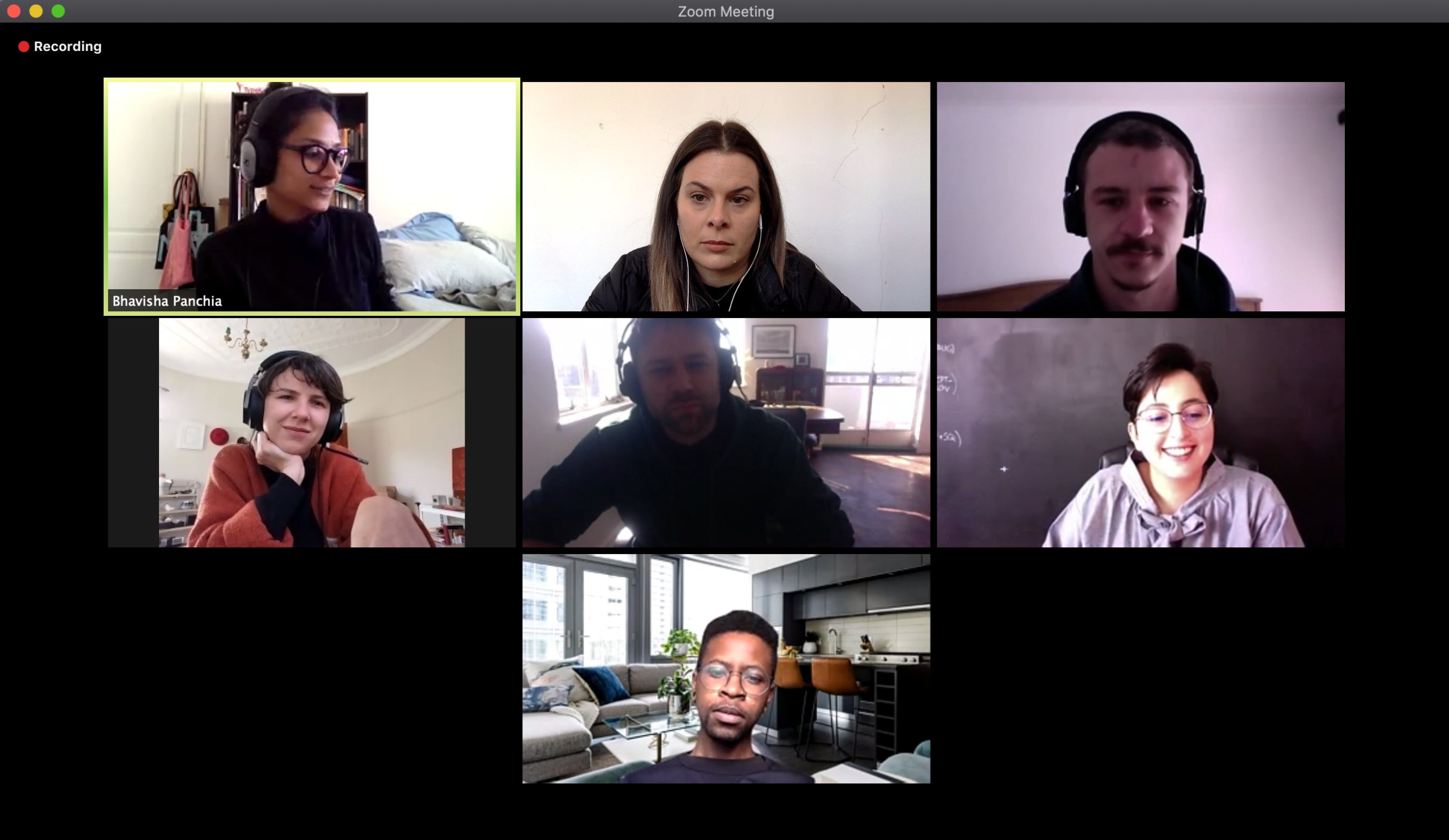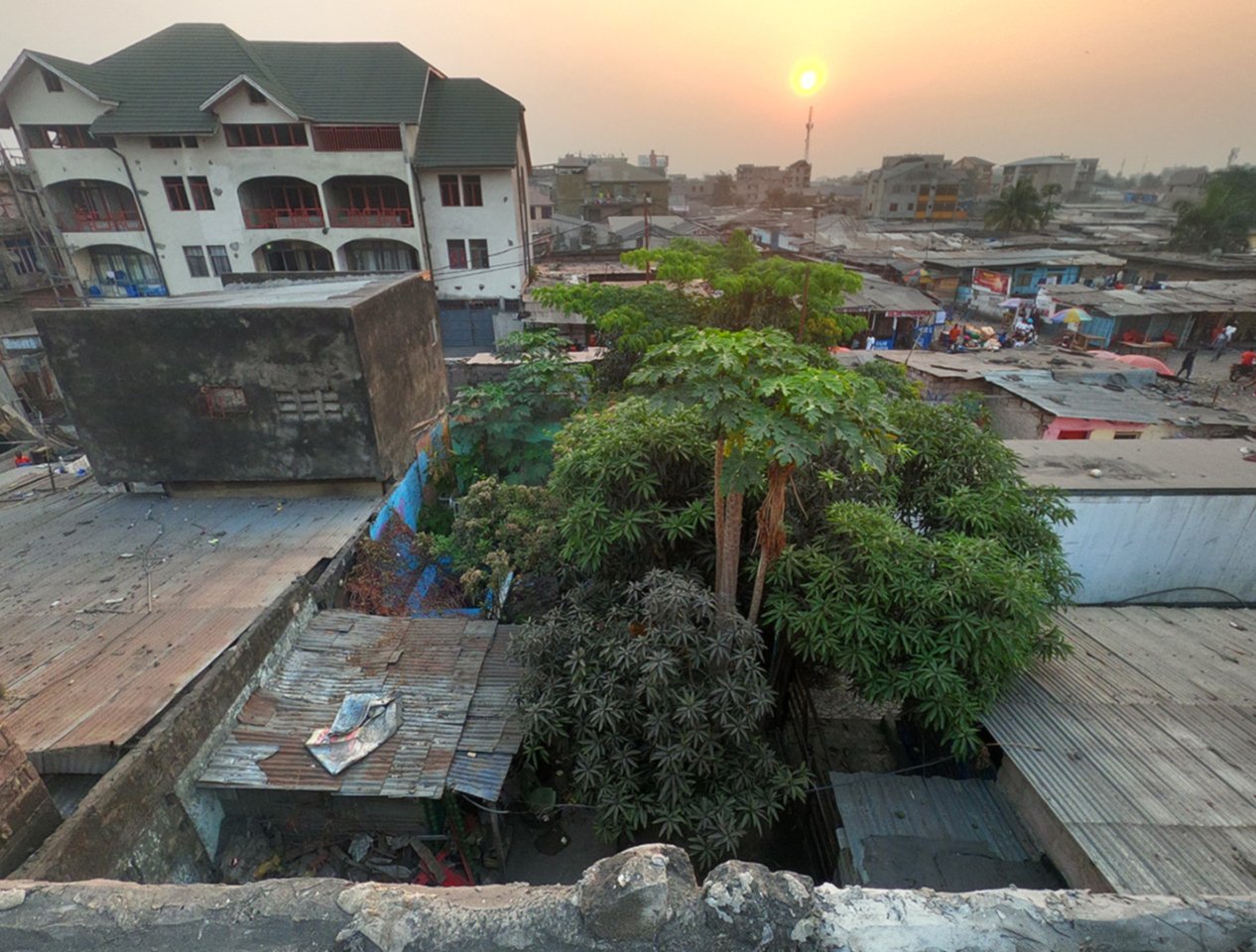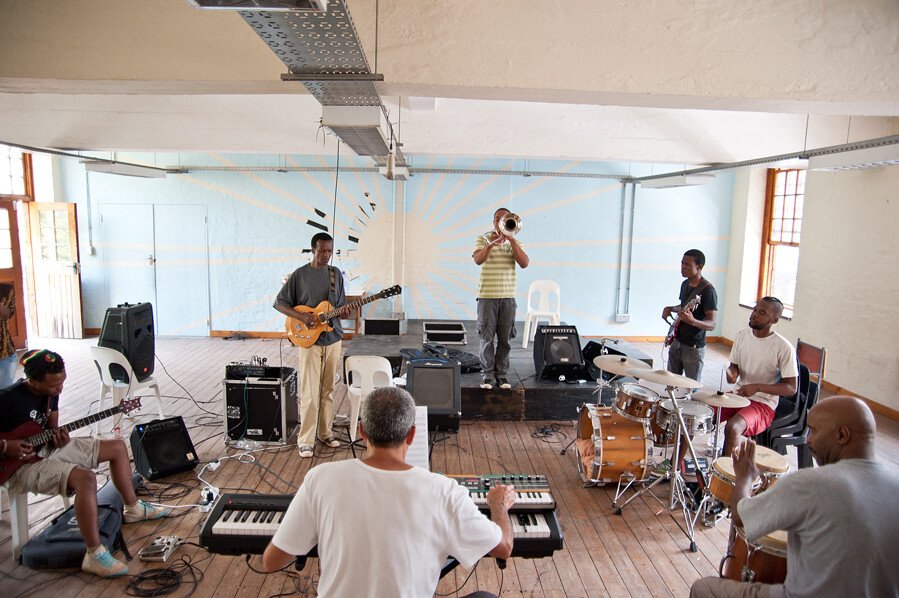Languages
EnglishFrenchGermanPidginSpanishYorùbáTypes
ConversationEditorialExhibitionProductionLocations
AccraAddis AbabaBerlinBogotáCaliCopiapóHanoiJerusalemJohannesburgKinshasaKumasiLagosLubumbashiMedellínMexicoNew YorkParisRotterdamSalvadorSan JuanSantiagoSão PauloStuttgartTāmaki Makaurau AucklandWaSeries
InterdependenceNavigating FrictionArt Organizing as a Rhizomatic Practice
Đan Trần
July 31, 2025
To understand the significance of HAS’s work, it’s important to situate it within the broader context of Vietnam’s formal art education and institutional landscape. National art schools in Vietnam still more or less follow the same curricula that is rooted in the French colonial period, focusing on mediums of oil, silk, lacquer painting, and sculpture.
Elective Affinities for the Common Good
Gabriela Jauregui
July 19, 2025
The Insurgentes subway station is one of the main arteries in the beating heart of Mexico City. It is where an epic battle between punks and emos took place in the early 2000s. It is where the local shoe-shine guy and the lady who delivers tupperware meals to office workers, come to work after hours-long commutes. It is also home to Aeromoto, or “airquake”.
A Shelter for Art at the Dawn of the Proletariat
Juan José Santos
July 18, 2025
Electrified voices emerge from inside the house, as if an interview was being recorded. This is the headquarters of the community television channel Señal 3 of the La Victoria settlement, which broadcasts a daily program dedicated to the vicissitudes of the community. On the façade is a motto: “Communication at the service of the people.”
Lexicon for an Art Institution
Benjamin Seroussi
July 15, 2025
The first time I entered Casa do Povo was in 2011. As an editor of a Jewish magazine at the time, I wanted to interview figures from the former Ashkenazi quarter in downtown São Paulo, Brazil. I had scheduled an interview with the eighty-three-year-old leader of a Yiddish choir called Coral Tradição. It gathered mostly elderly women to sing on Monday nights, in Yiddish, for no one.
Editorial
OtherNetwork
July 15, 2025
In much of the Western world, trust in culture is wavering, as museums and cultural institutions once seen as possible vehicles for emancipatory struggle have revealed themselves to be among the main administrators of state censorship. However, for many cultural practitioners in the global majority, this trust has never been there.
Art for Development: How Independent Arts Initiatives Compensate for Government Ambivalence
Bianca A. Manu
August 22, 2024
On a resting rural road, desiccated dust rises from the pressure of tyres. Earth ascends towards the sky, creating a microclimate of red clay clouds around the road, the tyres, and the passengers. A trail of red mist follows as they journey to Wa.
Step by Step, Dot to Dot: Building OtherNetwork through Collaboration
F451
August 6, 2024
As developers of the OtherNetwork platform, we were faced with the challenge of establishing a format for a website that moulds an existing shared reality rather than imposing a new one? How to visualise data in a way that is collaborative, and non-extractive?
The Parasite: Data and a Chorus
Carolina Cerón
July 30, 2024
A parasite is a key feature of any system, acting as a “thermal exciter” that alters the nature of the environment to which it belongs. The independent spaces within Bogotá’s art scene have acted as parasites in this sense, as opposed to the commonly construed notion of an organism that lives off others.
Spaces of Collective Learning, Relearning and Unlearning
W’AHU Magazine and Drama Queens
April 2, 2024
As queer activists in Ghana fighting against the anti-LGBTQ bill, we realised that the kinds of violence or the kind of systems that we have to change go beyond just legal: we are fighting to help change the narrative.
Plotform Urbanism: How to do things with Art
Kim Gurney
April 2, 2024
Independent art spaces – or offspaces in artworld speak – are shapeshifters that constantly metamorphose in response to accelerated flux and uncertainty. This includes reincarnating into second lives, or sometimes even dying when the time is right. Such redirection, through a dual strategy of refusal and reimagination, is how they sustain themselves
Editorial 02 – Navigating Friction
OtherNetwork
April 2, 2024
Since the foundation of OtherNetwork, we have used the notion of independence as a provocation, embracing the friction that the term itself may cause in an effort to redefine and unpack what it means to produce culture at the margins of society.
Shattering the Structure
Sorana Munsya, Lydia Schellhammer and Christ Mukenge
December 21, 2023
OYO Project has always been a nomadic project. At first, we worked in several different public spaces. But after a while, working in the street became dangerous because the police wouldn’t let the youth assemble in public. Young people also had a hard time staying focused in open spaces.
A Home in the World: Centre d’art Waza
Christian Nyampeta and Feza Kayungu Ramazani
December 1, 2023
“Waza,” which means “thinking” or “imagination” in Swahili, emerged through friendships between artists and cultural workers living in Lubumbashi. The space quickly became a bustling meeting place for all manner of artists who congregated there to work.
From Facing the Mirror to Intentional Conversations
Bernard Akoi-Jackson and Foundation for Contemporary Art - Ghana (FCA Ghana)
April 24, 2023
It is almost midday on a mellow Sunday afternoon in Accra. It is September 4, 2022, the day our comrade and friend, Isaac Nana Osei Kwadwo (aka Ashanti immigrant) would be finally laid to rest in his hometown in Offinso, Ashanti Region, Ghana. On Saturday, September 3, the entire art community in Accra had gathered in the grounds of the W. E. B. Dubois Centre to mourn…
Terra By The Way
Terra Alta
April 19, 2023
A growing collection of shipping containers. A round concrete seat with a wooden bench. A tiny urban farm growing local vegetables and herbs. Terra Alta is, for me, a push always towards higher ground. But to other people, what exactly is it? We asked our community to help us answer.
Dreaming Art in an Unlikely place
Oris Aigbokhaevbolo
April 18, 2023
Depending on the direction you are coming from, you may need to walk or drive through a street with a confusion of names to get to the Vernacular Art-space Laboratory (VAL) in Iwaya, a community along the coast of mainland Lagos. Once known by one name, the street is on the verge of getting subsumed by another.
Editorial 01 – Interdependence
OtherNetwork
April 12, 2023
Throughout history, large art museums and cultural institutions have been instrumental in forging powerful myths. To control a museum, as art historian Carol Duncan wrote, “means precisely to control the representation of a community and its highest values and truths. It is also the power to define the relative standing of individuals within that community.”
Removing Barriers, Elevating Practices
Papa Omotayo
October 28, 2022
I was trying to trace footsteps, memories of a time that lay somewhere between myth and someone else’s life. Hours had now passed, walking, in a slight daze, crisscrossing Murtala Muhammed Way and the gridded streets of the southern area of Yaba that formed the historical Ebutte Metta, a Yoruba settlement of the Egba people from the Abeokuta kingdom. I was now on Borno Street.
The Studio as a Shared Collaborative Space: Notes on a Prototype
Bhavisha Panchia, Carly Whitaker and Chad Cordeiro
October 26, 2022
The ecology of the artworld in South Africa today relies on support from public and private institutions. Yet there is a deficiency of state and municipal funding for maintaining public art institutions as well as supporting exhibition programming, acquisitions, and publishing. This has led to privately-funded institutions…
GHeTTo GeT In-GrOw Up!
Eleonore Hellio
October 26, 2022
We’re in the 1990s in Ngbwaka, a district of Kinshasa, capital of the Democratic Republic of Congo. This district was renamed during the Zairianisation period (1971–1997), by the Ngbwaka, a forest people whose territory stretches from the province of Équateur to the north-west of the country and beyond.
My Ever Whirling Dust
Keleketla! Library and Sumayya Vally
October 25, 2022
We are currently located in Troyeville, which is on the east side of the city, close to Maboneng, and just next to the Jeppe police station. We are there as part of our placemaking and worldmaking practice, but also as part of our ethical exile from the Drill Hall.
